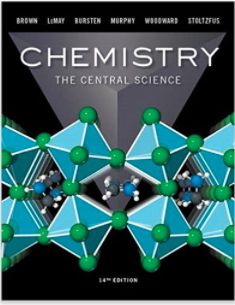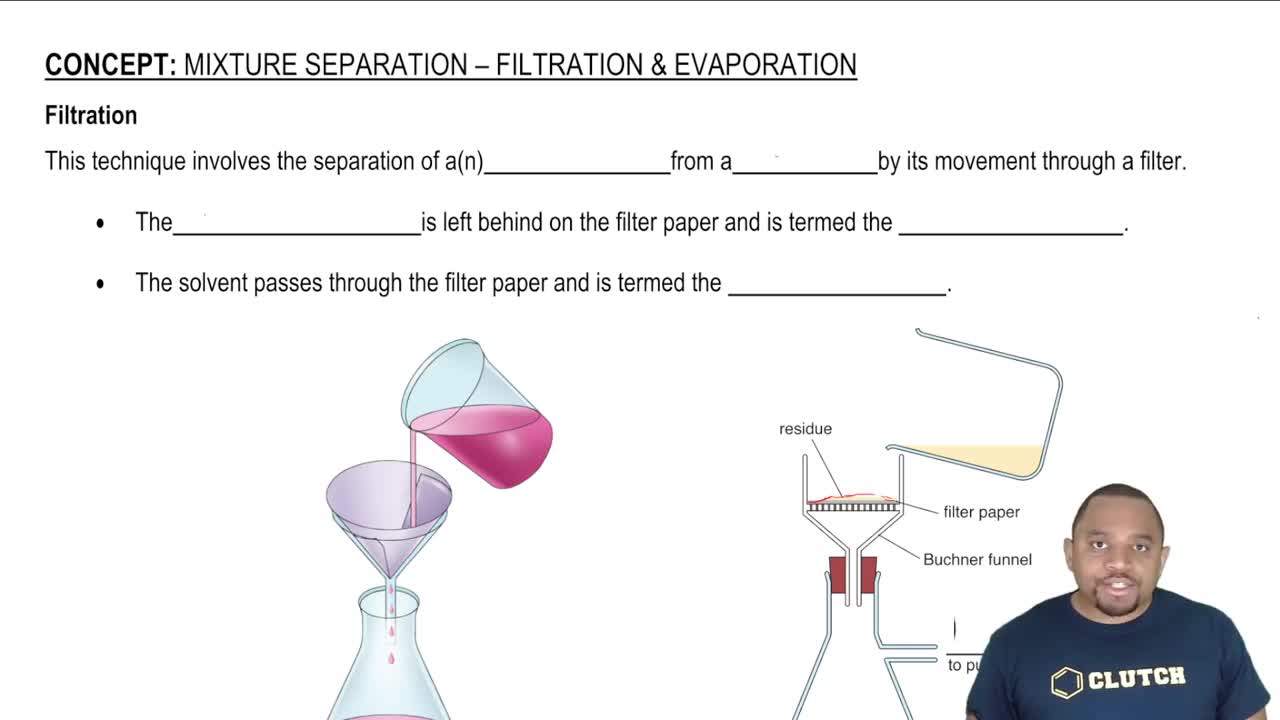Label each of the following as either a physical process or a chemical process: (a) crushing a metal can (b) production of urine in the kidneys
Ch.1 - Introduction: Matter, Energy, and Measurement

Brown14th EditionChemistry: The Central ScienceISBN: 9780134414232Not the one you use?Change textbook
Chapter 1, Problem 23
Which separation method is better suited for obtaining sugar from cane juice—filtration or evaporation?
 Verified step by step guidance
Verified step by step guidance1
Step 1: Understand the composition of cane juice, which is a mixture of sugar, water, and other impurities.
Step 2: Consider the principle of filtration, which is used to separate solids from liquids. Filtration would not be effective here because sugar is dissolved in the liquid, not present as a solid.
Step 3: Consider the principle of evaporation, which involves heating the solution to remove the solvent (water) and leave behind the solute (sugar).
Step 4: Recognize that evaporation is suitable for separating sugar from cane juice because it allows the water to evaporate, leaving the sugar behind.
Step 5: Conclude that evaporation is the better method for obtaining sugar from cane juice, as it effectively separates the dissolved sugar by removing the water.
Key Concepts
Here are the essential concepts you must grasp in order to answer the question correctly.
Filtration
Filtration is a physical separation process that uses a porous barrier to separate solids from liquids or gases. In the context of obtaining sugar from cane juice, filtration can remove impurities and solid particles, such as plant fibers, allowing for a clearer liquid. This method is effective for separating components based on size but does not concentrate the sugar itself.
Recommended video:
Guided course

Filtration and Evaporation
Evaporation
Evaporation is a process that involves the conversion of liquid into vapor, typically by applying heat. In sugar extraction, evaporation is used to concentrate the sugar solution by removing water, resulting in a thicker syrup that contains a higher concentration of sugar. This method is crucial for obtaining sugar crystals from the concentrated solution.
Recommended video:
Guided course

Filtration and Evaporation
Separation Techniques
Separation techniques are methods used to divide mixtures into their individual components based on physical or chemical properties. In the case of sugar extraction from cane juice, both filtration and evaporation serve different purposes: filtration removes solids, while evaporation concentrates the liquid. Understanding the appropriate technique for a specific goal is essential for effective separation.
Recommended video:
Guided course

Filtration and Evaporation
Related Practice
Textbook Question
29
views
1
rank
Textbook Question
Label each of the following as either a physical process or a chemical process: (c) melting a piece of chocolate (d) burning fossil fuel (e) discharging a battery.
43
views
2
rank
Textbook Question
A match is lit and held under a cold piece of metal. The following observations are made: (a) The match burns. (b) The metal gets warmer. (c) Water condenses on the metal. (d) Soot (carbon) is deposited on the metal. Which of these occurrences are due to physical changes, and which are due to chemical changes?
25
views
Textbook Question
A silvery metal is put inside a beaker of water. Bubbles form on the surface of the metal and it dissolves gradually. (a) Is this an example of a chemical or a physical change?
27
views
1
rank
